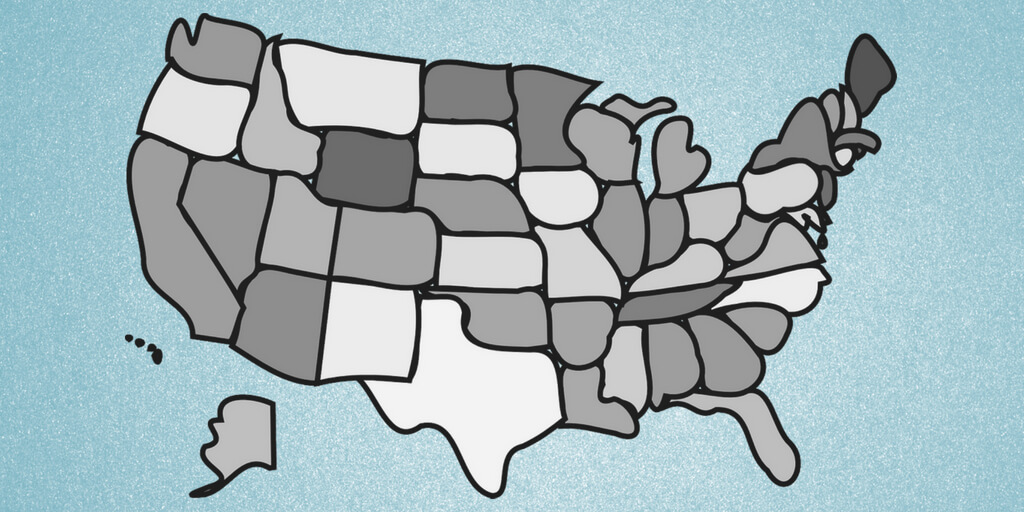The National Labor Relations Board (NLRB) is an independent federal agency that enforces the National Labor Relations Act (NLRA). The purpose of the Act is “to protect the rights of employees and employers, to encourage collective bargaining, and to curtail certain private sector labor and management practices, which can harm the general welfare of workers, businesses and the U.S. economy”. The NLRB has broad jurisdiction over private sector employers, employees, and labor organizations. NLRB jurisdiction includes most non-government employers with sufficient activity in interstate commerce.
NLRB Employers and Employees
Employer
The NLRB’s definition of “employer” includes private employers and anyone acting directly or indirectly as an agent of an employer. It does not include the United States, government corporations, federal reserve banks, or those subject to the Railway Labor Act.
Employee
The NLRB’s definition of “employee” includes any employee of a covered employer, including any person whose work has been discontinued in connection with a labor dispute or unfair labor practice. It does not, however, include agricultural laborers, domestic service workers, independent contractors, or supervisors.
Jurisdictional Thresholds Vary by Industry
Despite the broad statutory definitions, the NLRB does not exercise jurisdiction over all private employers and employees. Instead, it considers whether a business performs sufficient volume to warrant coverage by the federal agency. The NLRB applies different coverage standards depending on the nature of the business.
Retailers
Retailers fall under NLRB jurisdiction if their gross annual volume of business is at least $500,000. For shopping centers and office buildings, the threshold is $100,000.
Non-retailers
The NLRB exercises jurisdiction over most non-retailers if their annual inflow or outflow or goods or services is at least $50,000 in gross annual volume. The inflows or outflows can be direct or indirect.
Transportation Industry
Businesses in the transportation industry must produce $50,000 in annual volume to be included in the NLRB’s jurisdiction.
Legal Organizations
Law firms and legal service organizations fall under the jurisdiction of the NLRB if their gross annual volume of business is at least $250,000.
Cultural and Educational Centers
The NLRB exercises jurisdiction over art museums, symphony orchestras, private colleges, private universities, and other private schools if their gross annual volume of business totals at least $1,000,000.
Health Care
Nursing homes and visiting nursing associations fall under the NLRB’s jurisdiction if their gross annual volume of business is at least $50,000.
For hospitals, medical offices, social service organizations, and child care centers gross annual volume of business must be at least $250,000.
Native American Tribes
The NLRB has jurisdiction over commercial enterprises owned by Native American tribes, regardless of whether they are located on a reservation. However, the NLRB does not exercise jurisdiction over enterprises that perform traditional tribal or government functions.
Federal Contractors
Companies with federal government contracts fall under the NLRB’s jurisdiction.
Contentious Gray Areas
NLRB jurisdiction is not always straightforward. There are areas where the Board has wavered on whether it has or should exercise jurisdiction. For example:
- Graduate students: In an August 2016 decision, the NLRB held that graduate students in private universities are employees and therefore can unionize under the NLRA. However, the NLRB has gone back and forth on whether graduate students are employees.
- College athletes: On August 17, 2015, the NLRB unanimously agreed not to exercise jurisdiction to determine whether Northwestern football players are university employees under the NLRA. The Board members feared that a ruling these athletes employees would be problematic for the college sports industry.
- Charter schools: In 2016, the NLRB held it has jurisdiction over New York and Pennsylvania charter schools because the schools are not political subdivisions of their states and therefore not exempt from the NLRA. However, in March of 2018, the NLRB declined to exercise jurisdiction over a Texas charter school because the NLRB found the school’s leadership was “responsible to state officials.”
- Religious institutions: NLRB jurisdiction depends on whether the nature of the work is religious. For example, a religious school usually would not fall under NLRB jurisdiction, but a religious health care institution typically would.
Why NLRB Jurisdiction Matters
Employers should know whether their organization falls under NLRB jurisdiction. If it does, employers will be subject to certain restrictions and obligations under the NLRA. These include, but go beyond, not interfering with employees’ ability to engage in union activity. For more on how the NLRA can affect non-union workplaces, read New Rules for Employee Handbooks.
